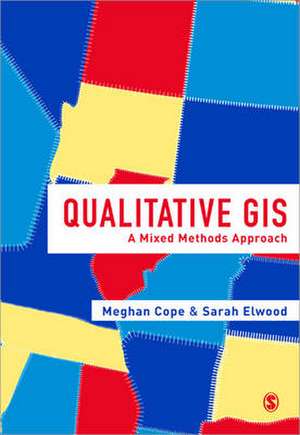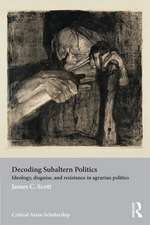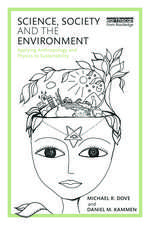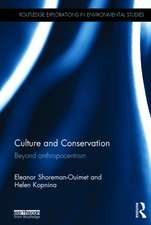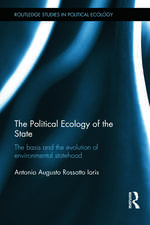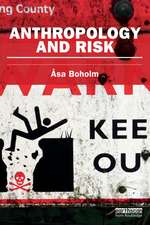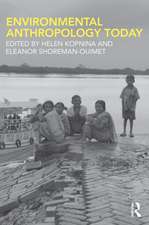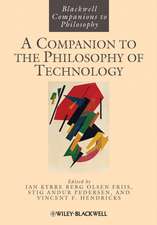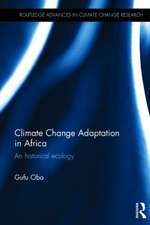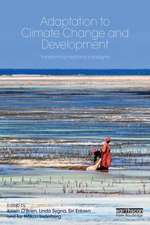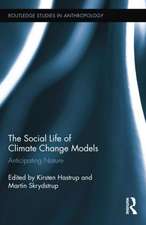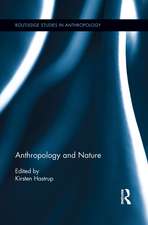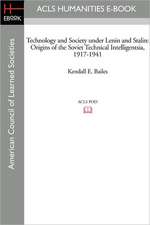Qualitative GIS: A Mixed Methods Approach
Editat de Meghan Cope, Sarah Elwooden Limba Engleză Paperback – 8 iul 2009
Representation: examines how researchers are using GIS to create new types of representations; working with spatial data, maps, and othervisualizations to incorporate multiple meanings and to provide texture and context.
Analysis: discusses the new techniques of analysis that are emerging at the margins between qualitative research and GIS, this in the wider context of a critical review of mixed-methods in geographical research
Theory: questions how knowledge is produced, showing how ideas of 'science' and 'truth' inform research, and demonstrates how qualitative GIS can be used to interrogate discussions of power, community, and social action
Making reference to representation, analysis, and theory throughout, the text shows how to frame questions, collect data, analyze results, and represent findings in a truly integrated way. An important addition to the mixed methods literature, Qualitative GIS will be the standard reference for upper-level students and researchers using qualitative methods and Geographic Information Systems.
| Toate formatele și edițiile | Preț | Express |
|---|---|---|
| Paperback (1) | 501.47 lei 38-44 zile | |
| SAGE Publications – 8 iul 2009 | 501.47 lei 38-44 zile | |
| Hardback (1) | 1134.09 lei 6-8 săpt. | |
| SAGE Publications – 8 iul 2009 | 1134.09 lei 6-8 săpt. |
Preț: 501.47 lei
Preț vechi: 619.10 lei
-19% Nou
95.97€ • 99.58$ • 80.21£
Carte tipărită la comandă
Livrare economică 11-17 martie
Specificații
ISBN-10: 1412945666
Pagini: 192
Dimensiuni: 170 x 242 x 13 mm
Greutate: 0.34 kg
Ediția:New.
Editura: SAGE Publications
Colecția Sage Publications Ltd
Locul publicării:London, United Kingdom
Recenzii
Geography Research Forum
'Qualitative GIS is coming of age, and this definitive collection explains why it deserves broad attention. These carefully selected essays by leading researchers, organized around a broad conception of qualitative GIS that extends beyond multi-media data integration to embrace new software tools and interpretive, situated epistemologies, will push readers to rethink not only their preconceptions about qualitative GIS, but also about GI science and critical GIS. GIS researchers, practicioners, observers and users will find much to chew on here' - Professor Eric Sheppard, University of Minnesota, USA
Cuprins
Introduction: Qualitative GIS: Forging mixed methods through representations, analytical innovations, and conceptual engagements - Sarah Elwood and Meghan Cope
Non-quantitative GIS - Marianna Pavlovskaya
PART ONE: REPRESENTATIONS
Metadata as a site for imbuing GIS with qualitative information - Nadine Schuurman
Multiple representations, significations, and epistemologies in community-based GIS - Sarah Elwood
Geographic information technologies, local knowledge, and change - Jon Corbett and Giacomo Rambaldi
PART TWO: ANALYTICAL INTERVENTIONS AND INNOVATIONS
Grounded Visualization and scale: A recursive analysis of community spaces - LaDona Knigge and Meghan Cope
Computer-Aided Qualitative GIS: A software-level integration of qualitative research and GIS - Jin-Kyu Jung
PART THREE: CONCEPTUAL ENGAGEMENTS
Affective visual geographies and GIScience - Stuart Aitken and Jim Craine
Towards a genealogy of qualitative GIS - Matthew W Wilson
Conclusion: For Qualitative GIS - Meghan Cope and Sarah Elwood
Descriere
Geographic Information Systems are an essential tool for analyzing and representing quantitative spatial data. Qualitative GIS explains the recent integration of qualitative research with Geographical Information Systems With a detailed contextualising introduction, the text is organised in three sections:
Representation: examines how researchers are using GIS to create new types of representations; working with spatial data, maps, and othervisualizations to incorporate multiple meanings and to provide texture and context.
Analysis: discusses the new techniques of analysis that are emerging at the margins between qualitative research and GIS, this in the wider context of a critical review of mixed-methods in geographical research
Theory: questions how knowledge is produced, showing how ideas of 'science' and 'truth' inform research, and demonstrates how qualitative GIS can be used to interrogate discussions of power, community, and social action
Making reference to representation, analysis, and theory throughout, the text shows how to frame questions, collect data, analyze results, and represent findings in a truly integrated way. An important addition to the mixed methods literature, Qualitative GIS will be the standard reference for upper-level students and researchers using qualitative methods and Geographic Information Systems.
